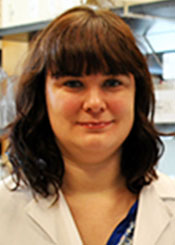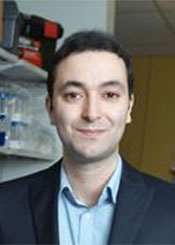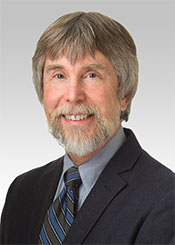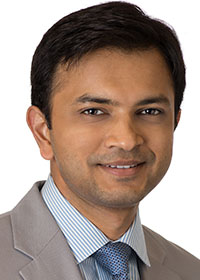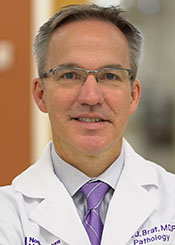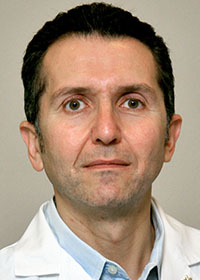Translational Research in Malignancies Members
The Translational Research in Malignancies (TRIM) program is a highly interactive translational cancer research program. Its main objective is to conduct studies centered on molecular mechanisms of cancer progression and therapeutic resistance and to translate basic science and preclinical discoveries into early diagnosis, biomarkers, and cancer therapeutics.
Beauchamp, Elspeth
Research Associate Professor
Bio
Dr. Beauchamp's research has focused on developing drugs for non-traditional targets through inhibiting protein-protein interactions in order to affect cellular function and target cancer cells. ... [more]
Ben-Sahra, Issam
Associate Professor
Bio
My current research is geared toward understanding the impact of metabolic pathways controlled by mTOR, a nutrient-sensing regulator of cell growth, on the properties of cells and tumors with specific... [more]
Benson III, Al B.
Professor
Bio
Al B. Benson III, MD, FACP, FASCO, is Professor of Medicine in the Division of Hematology and Oncology at Northwestern University Feinberg School of Medicine and Director for Cooperative Groups at th... [more]
Bharat, Ankit
Professor
Bio
My research is focused on lung preservation, transplant immunology and airway biology, achieved through collaboration with the Kovler Comprehensive Transplant Center and the Division of Pulmonary and ... [more]
Brat, Daniel
Professor
Bio
Project 1. We investigate mechanisms of progression to glioblastoma (GBM), the highest grade astrocytoma, including genetics, hypoxia, and angiogenesis. Progression is characterized by tumor... [more]
Bulun, Serdar
Professor
Bio
I have been conducting both basic and clinical research in steroid-related aspects of human disease since 1991. I have collaborated with many groups of scientists over the past 20 years to study the r... [more]

